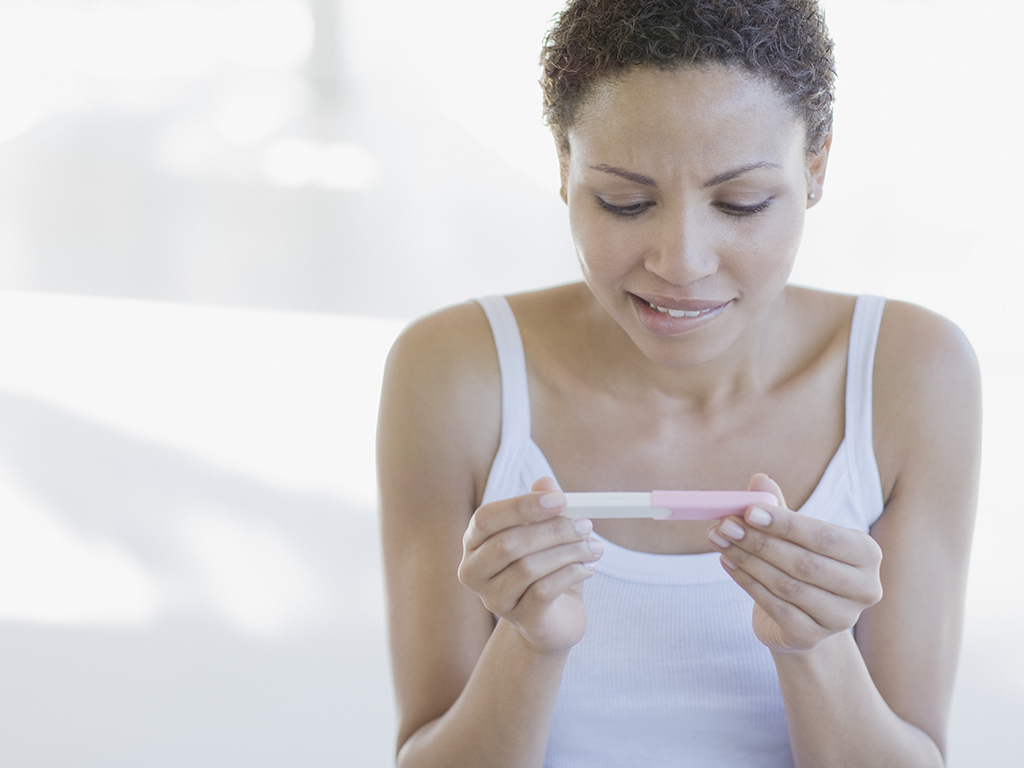There’s a wide variety of birth control options on the market that serve people well in their attempt to prevent pregnancy, but some feel confident that having sex while a woman has her period is a surefire way to avoid any accidents.

Unfortunately, that’s not as fool-proof as you might believe.
WATCH BELOW: Women are taking multiple pregnancy tests, even though they are pregnant — here’s why

“Of course we know you can’t get pregnant when you’re on your period, but there are many ifs there,” says Dr. Stephen Im, a gynaecologist and assistant professor at the University of Toronto. “If your period is regular, you should be fine, but in women who have an irregular cycle, there’s a possibility you could get pregnant.”
A regular cycle is anywhere from 28 to 30 days or longer, but some women have a shorter cycle (anywhere from 21 to 24 days), which means ovulation occurs earlier. Therefore, if a woman has sex toward the end of her period and ovulation naturally occurs four or five days later, she could conceivably get pregnant when you consider that sperm can live up to five days.

Get weekly health news
“Your period may be irregular, but ovulation is always two weeks before your next period and you ovulate for two days, so you have to calculate for that,” Im says.
- Canada’s grocery code of conduct is coming in 2026. What it means for you
- 3 kids die from influenza A-related complications since start of December in Ontario
- Tariffs and the end of ‘de minimis’ mean mailing gifts to U.S. is trickier
- Food prices spiked in November, says StatCan in latest inflation report
The other possibility is that you could have bleeding that doesn’t pertain to your menstrual cycle that could encourage you to have unprotected sex at a time when you’re actually fertile. Breakthrough bleeding can occur around the time of ovulation, leading some women to believe they have their period.
Having sex immediately after your period is also a risky time. That’s because a woman’s reproductive hormones — progesterone and estrogen — start to climb again towards the end of the menstrual period to help rebuild the uterine lining. Although there are no eggs released during this phase, sperm can live up to five days in a hospitable cervical lining. If the sperm does happen to fertilize an egg that’s within its 24-hour expiration period, bolstered by the elevated hormones, there’s a greater chance of pregnancy.
READ MORE: 6 foods pregnant women should avoid
“One study showed that people who had sex only one time during this phase still got pregnant,” Dr. Steven R. Bayer, a Boston-based reproductive endocrinologist, said to Parents.
The best time to have unprotected sex without risk of pregnancy
The time in which pregnancy is the least likely is just before your period. For a woman with a regular cycle (28 to 30 days), ovulation wouldn’t occur until roughly 14 days after menstruation. Considering an egg is only available for up to 24 hours, that leaves plenty of safe days after ovulation.
In general, if you know when you’ve ovulated, you should be safe to have sex without getting pregnant within 36 to 48 hours after ovulating. And the longer you wait after ovulation, the better your chances of avoiding pregnancy.










Comments